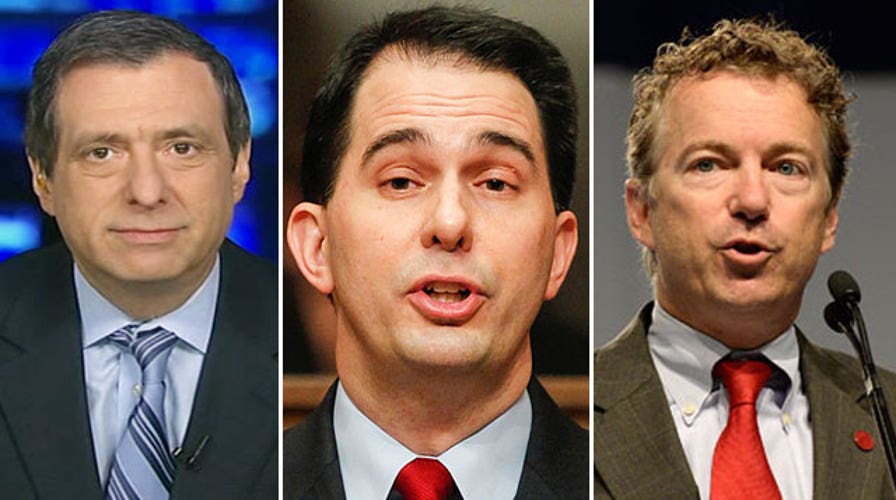Here we go again: Iowa, Iowa, Iowa.
That the first caucus state has an outsize impact on presidential politics isn’t news. That a poll nearly a year before the caucuses can shake up perceptions of the race is still stunning.
Scott Walker is now the man to beat, according to a new Quinnipiac survey. But it’s ridiculously early, and that could change a dozen times by early 2016.
While the media spend huge amounts of time and energy obsessing on Iowa, how much does it really matter? The 2012 GOP winner, you’ll recall, was Rick Santorum (although a vote-counting glitch deprived him of the initial momentum). The 2008 GOP winner was Mike Huckabee. Neither came close to winning the nomination.
George W. Bush and Bob Dole won Iowa in 2000 and 1996, but they were clearly the strongest candidates that year.
Iowa has been a better predictor on the Democratic side. Had Barack Obama not upset Hillary Clinton there, he probably would not have become president. John Kerry stopped Howard Dean in Iowa and never looked back.
Iowa is whiter and more rural than America as a whole. And Republican caucus-goers are more conservative and more evangelical than in many states, given that the process requires a higher level of commitment—spending three hours listening to neighbors give speeches on a cold winter night.
But somebody’s got to go first, and Iowa and New Hampshire have a lock on their calendar position. That’s why national polls don’t mean all that much in the presidential primaries, which are a state-by-state marathon.
So the media are justified in paying disproportionate attention to the caucuses. (Don’t get me started on the Iowa straw poll, when candidates get to bus in their supporters for a circus that mostly matters to the media).
With Walker at 25 percent in the Quinnipiac poll of likely caucus-goers, he nearly doubles the support for the next tier: Rand Paul at 13 percent. Mike Huckabee and Ben Carson at 11 percent. Jeb Bush at 10 percent.
And behind that group, Ted Cruz is at 5 percent, with Marco Rubio and Chris Christie at 4 percent.
As ephemeral as Walker’s lead might be, it gives the media a story line and ratchets up the scrutiny on the governor. We’ve seen evidence of that with the questions about evolution and the president’s Christianity, and the focus on his lack of a college degree.
So let’s treat this as the blurry snapshot it is. With the media filled with talk about how Jeb is a powerful front-runner, how is a little-known Wisconsin governor trouncing him at this early stage?
Well, voters who call themselves “very conservative” make up 45 percent of the group surveyed. Jeb and Christie are hardly going to be their favorites.
Tea Party supporters make up 32 percent of the sample, and Walker gets a third of their support.
And look at these favorability numbers: 63 percent for Huckabee and 57 percent for Walker; 41 percent for Bush and 30 percent for Christie.
So it’s a very conservative marketplace and a small one, which Santorum won last time with 29,839 votes.
The idea that fewer than 30,000 caucus-goers can boost a candidate and knock others out of the race seems crazy in a country our size. But nobody ever said running for president is a rational process. And it’s been very, very good for the Iowa economy.





